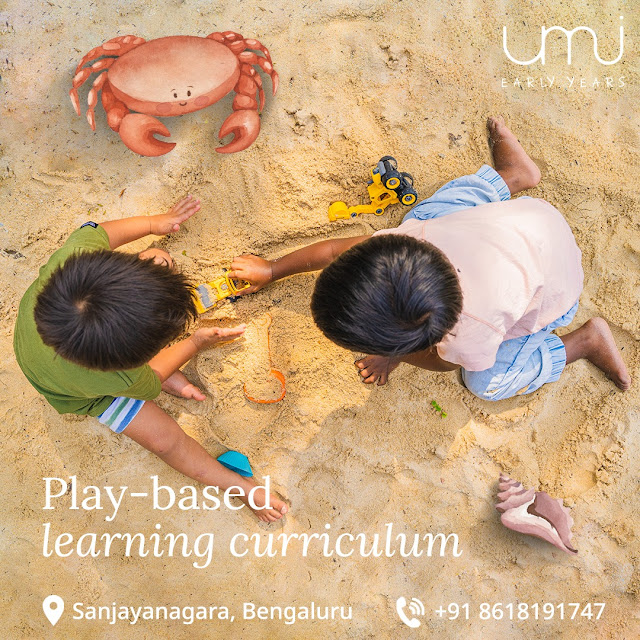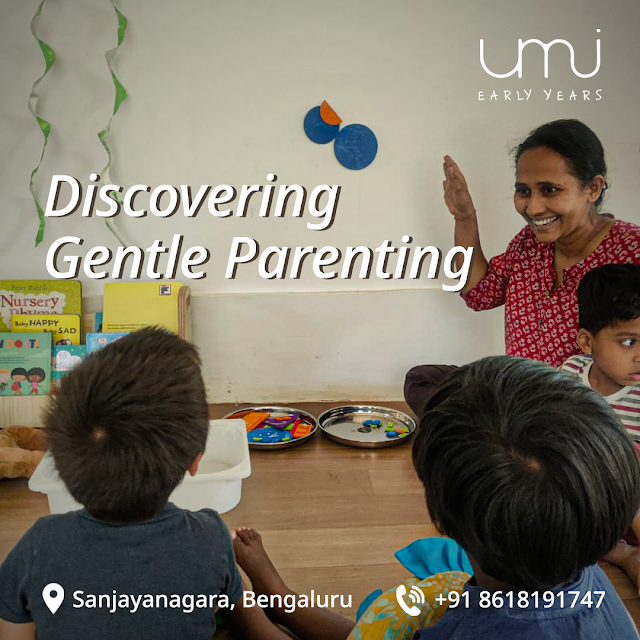What is Play Learning?
If you're looking for a play school, preschool, nursery or kindergarten you've probably come across certain terminology and pedagogies like Montessori, Waldorf, Reggio - Emillio, Multiple Intelligence etc. You would’ve also heard about Play-Way or the play-based approach. I hope this article can help you understand what Play Based really means in the simplest terms.
The Power of Play:
Play during early childhood is the most important experience and tool. In early years education it is a powerful method to help young children develop and learn in a manner that suits them best. Play-based learning is essential to learn through play. Play creates a stimulating and engaging environment for the child and is essential in brain development and socialization. The play way method has become popular over the last decade as educators and parents alike understand the importance of play in early childhood development. What are the different types of play used in play-based schools and what are their benefits? Let's look into it
Play Way Methods:
Free play typically means child-directed, voluntary, self-motivated and lots of fun!
Socio Dramatic Play is role-playing and pretending to play by creating and using social rules to express the same.
Teacher Guided Play is when the facilitator helps or adds to play by arranging things a certain way or posing questions and using prompts during play.
Physical Play is of course engaging in physical activity outdoors where they can run, skip, hop, climb etc.
Exploratory Play is exploring their environment, new materials, textures, their senses etc.
Manipulative Play is played using things like puzzles, building blocks or other construction toys and also toys like lacing etc.
Games are used with rules and mostly outcome driven but not in competition.
Play with Purpose:
A play-based school will most likely use all the different methods of play to create an enriching environment for the children.
“High-quality classrooms that utilize play-based, hands-on learning activities are well-thought-out, intentional spaces — not just a free-for-all where the children jump from activity to activity and a teacher is disengaged and spends his/her day managing behaviours,” says an early childhood educator, Tina Gabel, MEd. “In an exceptional play-based atmosphere, there are no worksheets to showcase understanding and learning; instead, the formal documentation is gathered through learning stories, anecdotal notes, and photo assessments.”
There is a myriad of benefits to play-based learning. It creates a very holistic learning environment that keeps the children and their needs as a top priority. From how the classrooms are set up to lesson planning to engagement play is at the heart of the development of the child. Play-based learning helps with brain development, developing social and language skills and the information they learn is meaningful.
Furthermore, the early years from 0 to 7 is the time frame when a child's brain is rapidly developing; they are forming about 1 million neurons every second; this is the key period in a child's development. It's a small window of opportunity wherein we can really help them develop in a manner that helps them achieve their potential and sets the stage for the rest of their lives. Research clearly shows that early childhood and early years education play a huge role in what a person's life will look like. It impacts everything from their careers to mental health to even longevity. Pedagogies that are play-based can be very instrumental in the overall development of the child.
Author,
Indira Sukumaran,
Founder/ Mother
The author, Indira, hails from a family of educators. She represents the third
generation of Educational entrepreneurs in the family. Their
establishments are renowned for rank holders and national-level
athletes. Through their in-depth understanding of child development, she
created a curriculum that embraces all areas of early years growth and
development. Giving birth to their latest endeavour, UMI Early Years.



Comments
Post a Comment